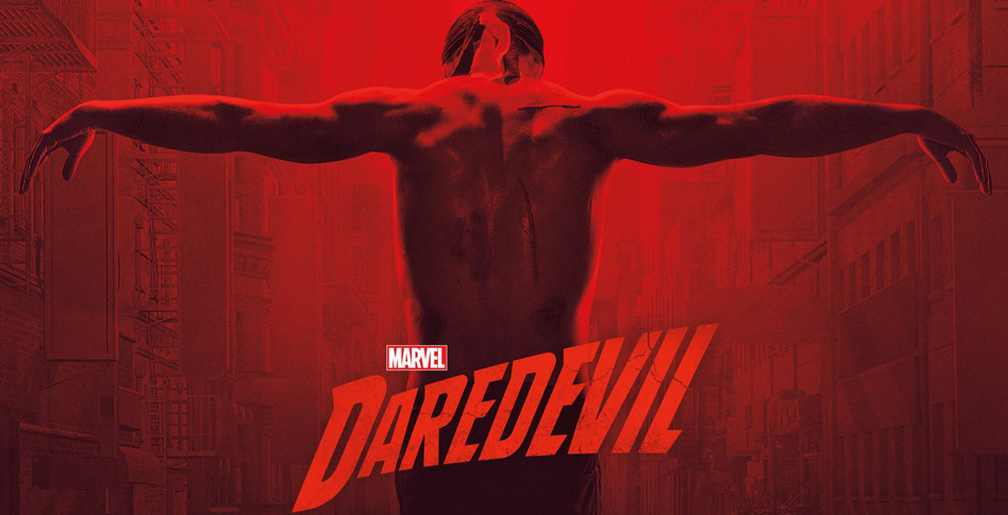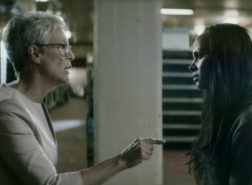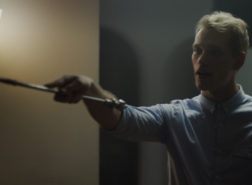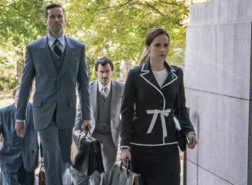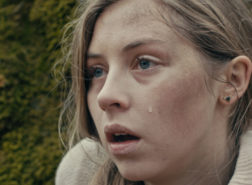 (4 / 5)
(4 / 5)
A blind lawyer by day, vigilante by night. Matt Murdock fights the crime of New York as Daredevil.
There’s a curious timeliness to Netflix and Marvel’s first child and a lot of that relates directly on a thematic level. This season focuses on the rise of men to power who all see as a criminal asking questions like, “How do you deal with someone so rich and manipulative they’re above the law?” Small stories (like the FBI investigation, Foggy’s run for District Attorney, and the attacks on public institutions) mirror headlines from today’s world. Violence at newspaper outlets or churches, FBI investigating a man of power with little results, strong undercurrents of ‘the common New Yorker’ rejecting the status quo of their borough politics. There’s a lot to break down in the show and the show does it all even while leaning into its comic book aesthetic delivering on a show I’ve been waiting on for several years now.
Years ago when the Netflix/Marvel deal first happened skeptics worried viewers would overdose on quippy lines, bright color palettes, and unnecessarily derived plotting. Instead what we got was a ‘dark side’ to the Marvel universe. Still situated in the comic book universe the movies established but more capable of dealing with adult themes (like trauma, drug addiction, the criminal justice system, sexism, or alcoholism) this new batch of television felt a bit like a pinot noir to the MCU’s chardonnay, and it all started with “Daredevil.”
I’ll admit the grounded, realty-oriented aesthetic of the show felt too elaborate for me. When I started watching the show I hoped they would lean into the comic book aesthetics and utilize them. It’s taken three seasons of “Daredevil” and its sister shows to finally get there, but boy am I glad. Even though the conflict of the story is very much a real atmosphere, this show is done explaining Daredevil’s origin, finally embracing things like the Kingpin nickname or the uncanny precision of Bullseye. We don’t waste time explaining the suit or the alter ego or the superpowers. We finally dig right into the meat of it.
“Daredevil” isn’t a perfect show. Far from it. I would admit the protagonist’s flip on his moral grounds doesn’t feel earned and the trauma from past seasons kind of fades away as the story develops. In previous seasons the side characters (Foggy Nelson, Karen Page, Wilson Fisk, and now Agent Ben Poindexter) absorb more attention as their characters go through more focused arcs only this season Matt Murdock finally comes into focus. He starts in a strong point A and ends on a Point B only losing us once or twice as to how he gets there. Meanwhile, Foggy and Karen grow throughout the show confronting their own traumas in different ways.

Charlie Cox & Vincent D’Onofrio in Daredevil (2018).
Aesthetically, it’s still a very dark show and something I literally can’t watch during the daytime. An ounce of daylight will make the whole frame feel out of focus, but the show delivers in certain moments (most notably being the church fight.) It abandons overly mixed and powerful color palettes for singular colors. The reds of the church interior or the sterile white of Fisk’s penthouse. Ironically, for a show about New York, you can see just how many sets they actually shoot on as they move from one elaborately decorated hallway to another. The transitions are seamless (no doubt a product of excellent set design and production design.) When the show is running on all cylinders it’s excellent, otherwise, it’s entertaining.
That’s what we expect from these shows: entertainment. It may be an antidote to the brighter colors of the MCU but it still has a story to tell and “Daredevil” does so willingly. I found it utterly fascinating to watch as Wilson Fisk, a known criminal, manipulates his way out of prison by coercing the FBI and branding the media as biased. One of the most realistic moments of the show comes when the protesters outside begin to doubt Fisk’s culpability as he proclaims the media, with the work of Daredevil, have been working to slander his name. The media, he proclaims, have it wrong. Similarly, a moment comes into focus when Bullseye attacks the Catholic cathedral in Hell’s Kitchen (or when he similarly attacks the Bulletin – a newspaper.) These kinds of moments ring true in many different ways almost echoing perfectly our lives outside of the television. An attack on a house of worship? Powerful wealthy elite discrediting the very fabric of news media? Criminals rising to power by abusing the very systems designed to prevent them from ever happening? I can’t say the show writers knew what would happen when Netflix released this season, but I can say there’s a certain amount of prescience in this show that goes beyond just head nods to our daily living.
In the end, we have to accept the closure the show has to offer. Like any comic book show: the Good Guys win, the Bad Guys lose, and a sacrifice is made. I’m sure we’ve all heard about the recent ending of “Iron Fist” and “Luke Cage” (two of the five Marvel/Netflix shows axed as Disney prepares to ramp up their own streaming service) and I’ll be honest: if this last season of “Daredevil” is what I have left, then I’m fine going out on season three. The story feels fully resolved, and our heroes finally have what they need. We can stop wondering if Matt Murdock will kill someone. We can stop hoping Murdock and Nelson become law partners again or if Karen Page will join the duo into becoming the group they are. It’s a fine ending for a show, leaving me with a single tear or two. It’s a great note to go out on. I’ll be singing the praise for “Daredevil: Season Three” as a great finisher to what was a bizarre experiment in the ongoing money machine that is Marvel Comics.
Now streaming on Netflix



